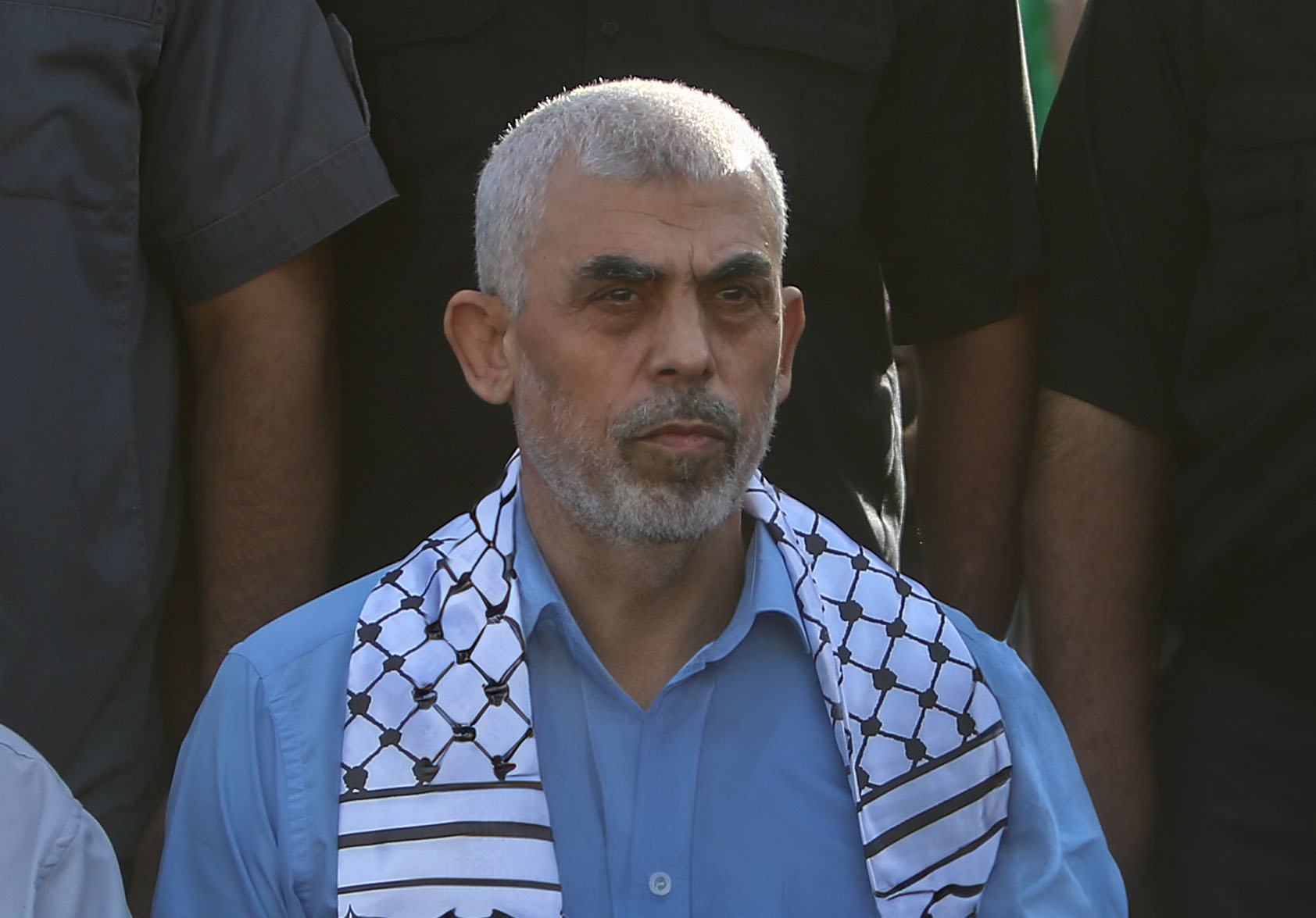The elimination of Hamas leader Yahya Sinwar, the unrepentant mastermind of the darkest day in Israel’s history, brought a collective sigh of relief. The human embodiment of evil is now gone.
Sinwar was especially evil because he sacrificed the lives of his own people in the service of his holy mission: eliminating the Jewish state, a mission Sinwar himself reaffirmed in a 2021 conference in Gaza City.
As I saw images recently released of Sinwar in sweats and a T-shirt schlepping supplies in a Gaza tunnel with his wife and kids, there was an odd disconnect. He looked like an ordinary father. This was on the eve of Oct. 7, and the man was clearly bracing himself for the inevitable counterattack by Israeli forces.
There was a somewhat earnest look on his face, as if to say, “Hey, let’s make sure we’re well hidden and protected.” Sinwar knew, of course, that there were hundreds of miles of similar tunnels throughout Gaza, beneath schools, homes, hospitals and mosques, that would make the fighting miserable for Israeli soldiers trying to root out thousands of well-armed Hamas terrorists.
Maybe he didn’t anticipate the ferociousness of an army that felt humiliated by the biggest security breakdown of its history; an army that desperately needed to regain both the trust of its people and the deterrence vis-a-vis its enemies.
Sinwar may have rationalized his evil acts by convincing himself he was doing God’s work, but I underestimated his capacity for martyrdom. I always assumed that when push came to shove, he’d release the hostages in return for safe passage out of Gaza for him and his family.
But when push did come to shove, he threw a stick at an Israeli drone. That was the desperate final act of a defiant mass murderer who, on his last breath, chose heaven over a Ritz Carlton in Doha.
Two things struck me when I saw that forlorn image of Sinwar sitting alone in abandoned ruins with his face covered.
One, he must have been in intense pain, given that his right hand was blown away in an earlier firefight with Israeli forces.
And two, I thought about the brain inside his covered head.
In 2008, while he was an inmate in Israel’s Eshel Prison, Sinwar developed a brain tumor. An Israeli surgeon operated on the tumor and saved his life. Three years later, he was freed along with more than 1,000 Palestinian prisoners in return for hostage Gilad Shalit.
The man who orchestrated Oct. 7 owed his life and his freedom to the people he dreamed of destroying.
The Israeli surgeon who operated on Sinwar didn’t see a terrorist’s brain. He saw the same human organ he usually sees, with a tumor that needed to be excised. And he treated him as he would any other patient.
I’ve always had this weird fascination with the simple fact that all human beings share the same organs; that a terrorist has the same beating heart as a virtuous human being who aims only to do good.
We all share the same pancreas, blood vessels, lungs, liver, kidneys and intestines. Our acts may differ, but inside we’re made of the same stuff. The Hamas murderers who rampaged through Israeli homes on Oct. 7 were using the same eyes and ears as the terrified victims who heard their sounds and saw the killing reach them.
What guides our acts is one organ–our brains– and how we choose to nourish those brains. Nourish them with pure hatred and a desire to destroy and a massacre like Oct. 7 will seem perfectly appropriate.
The real tumor inside Sinwar wasn’t a physical one. It was a spiritual tumor that invaded his brain cells and turned him into an evil force with a callous disregard for human life, both Jewish and Palestinian.
For that kind of tumor, the only operation is to eliminate the rest of the body before it goes on another mission.




